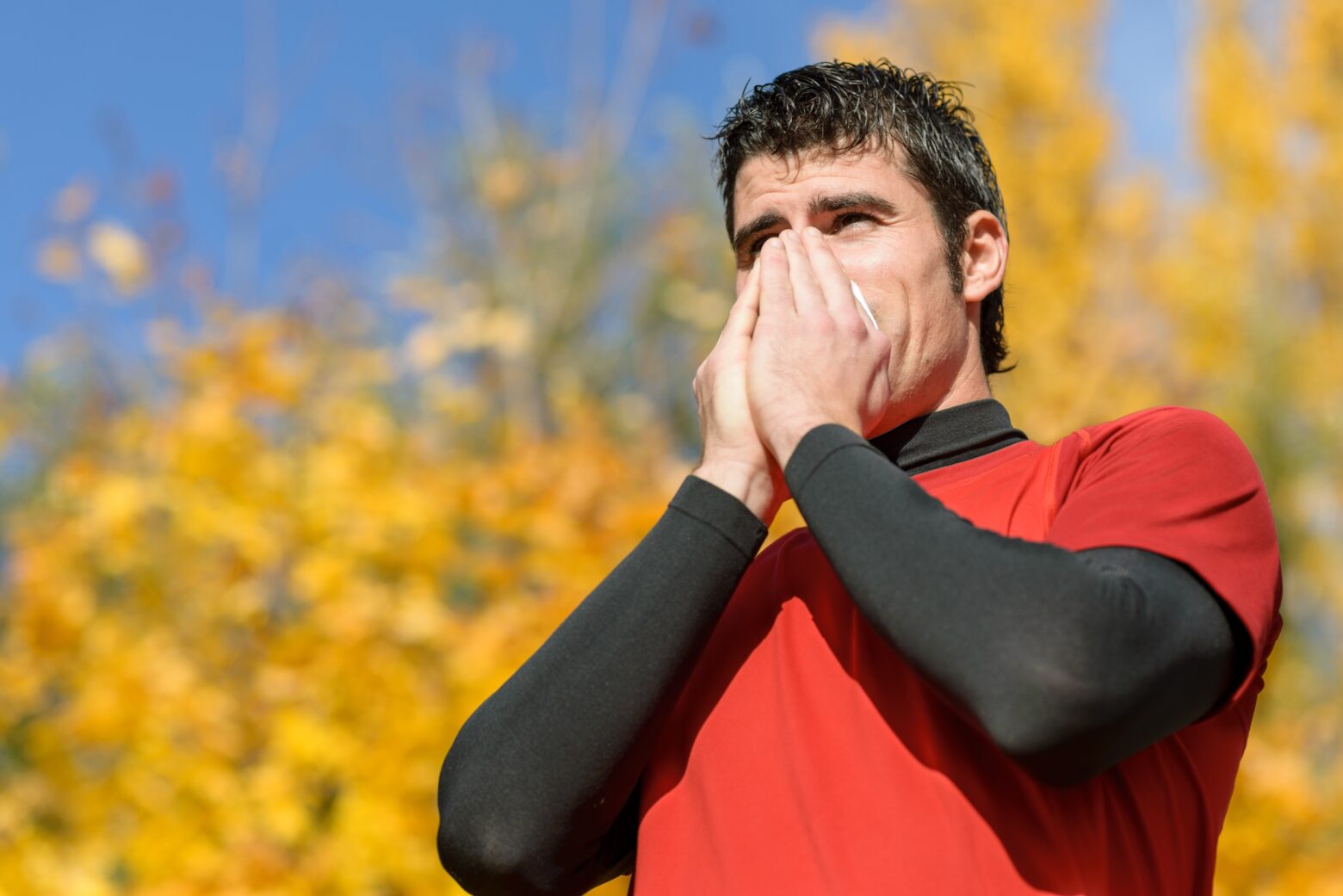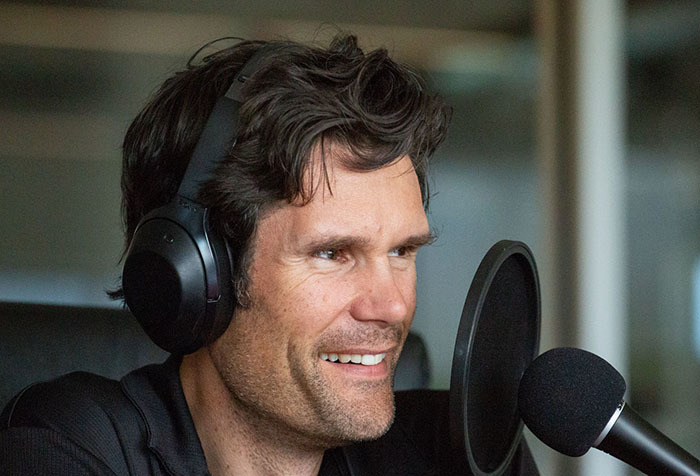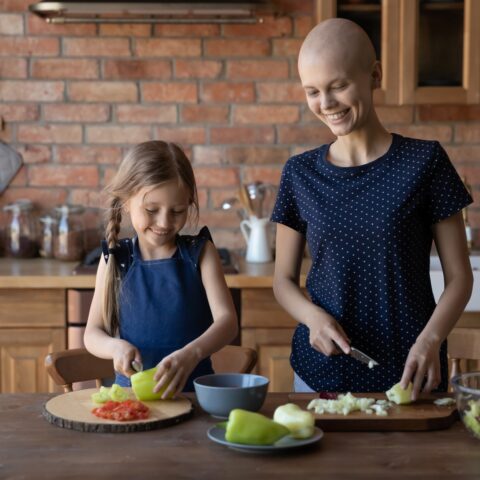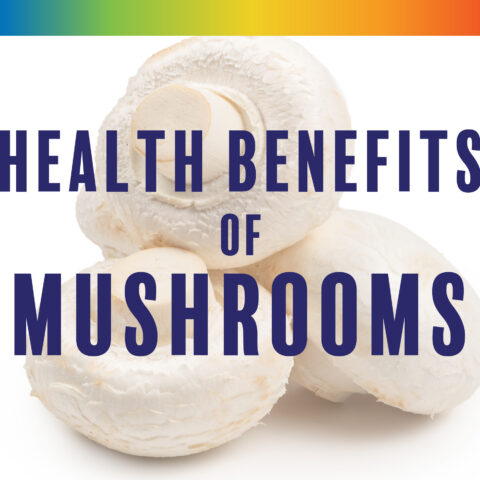Balancing Exercise and Illness: Two Sides of the Same Coin

We all know that when we exercise our bodies adapt and get stronger. We also all know that when we get sick, our immune systems ramp up to fight the virus or infection. These two things seem to be completely independent of one another, but that’s actually not the case. Fighting illness and the beneficial adaptations we get from training are in fact two sides of the same coin.
And that’s all because of evolution.
Evolution hates re-inventing the wheel. Whenever it discovers something beneficial, it has a way of hanging on to that new trick and using it anywhere it can. And when we’re talking about something as sophisticated and calorically expensive as our immune system, evolution has made sure to get its money’s worth.
Our immune systems do a lot more than just fight off harmful invaders. Their many functions include acting as a transport system, they manage cell apoptosis to ensure our bodies are healthy and functioning normally, they sample the foodstuff in our guts to help determine what should gain entry.
And when we exercise, our immune systems handle the repair that produces many of our major training adaptations.
In fact, the fundamental principle of exercise science – the Principle of Progressive Overload – depends on the immune system. The Principle states that training actually causes damage, and if that damage is big enough, our bodies hyper-compensate and rebuild stronger to avoid the same damage in the future.
Our immune systems are responsible for that repair work and hyper-compensation. In other words, the macrophages, T-Cells and cytokines like Il-6 and TNF-α that fight viral infections are also responsible for making us stronger and faster. Hence, fighting illness and producing training adaptations are in essence two sides of the same immunological coin.
This has several important implications:
- Training is inflammatory – after that hard interval session or big weight lifting routine, your muscles are damaged, and the body’s healthy response to that damage is inflammation around that damaged tissue.
- Training Can Suppress the Immune System – excess inflammation can lead to something called Systemic Inflammatory Response Syndrome (SIRS) which is dangerous. So, when there’s a lot of damage due to training, our bodies try to keep the inflammation localized to the damaged muscles by suppressing the immune system in the rest of the body.
- Excessive Training Can Cause the Immune System to “Malfunction” – when you are training hard, your immune system has to do double-duty repairing damage and fighting potential infections which can put a strain on it. If that load becomes too big (like when athletes over-train) the inflammation can become aberrant and lead to inappropriate responses.
Let’s explore each of these in more depth…
Training Is Inflammatory
You just completed a hard run causing minor muscle tearing in the muscle fibers of your legs. Your body’s immediate response is to release inflammatory cytokines like IL-6 and TNF-α to promote an inflammatory response. You experience this inflammation as swelling and muscle soreness. The activated immune cells then very effectively clear out damaged tissue and begin the repair work.
The whole process is generally completed within a few days which you’ll experience as a day or two of dragging your feet followed by fresh stronger legs.
This happens every time we train hard and do damage. It’s a natural and healthy reaction. But always remember that that inflammation is very similar to the inflammation you experience when you’re sick.
Which begs the question, why don’t we feel sick after every hard workout?
Training Can Suppress the Immune System
Excess body-wide (systemic) inflammation is dangerous. In fact, this condition known as Systemic Inflammatory Response Syndrome (SIRS) is what can cause death in burn victims and people suffering from sepsis [1].
SIRS is generally only seen in the trauma ward, but there actually is evidence of this syndrome in over-trained athletes [1].
But that’s uncommon. Most of the time, our immune systems try to localize the productive inflammation to the damaged muscles and avoid inappropriate and excessive inflammation throughout the body. Anti-inflammatory cytokines such as IL-10 and TGF-β are released into the bloodstream to suppress systemic inflammation. [2]
In essence, the immune system weakens itself.
So, after periods of heavy training, we are not as effective at fighting infections. Which means, the worst time to hang out at a coffee shop, use a public restroom or sit in an airport is soon after a three-hour race or hard training session.
And to add insult to injury, there’s an important balance in our bodies between two types of T-helper cells (the Generals of our immune systems.) Type 1 T-helper cells (Th1) direct viral responses while Th2 cells are responsible for allergic reaction. Unfortunately, as part of the immunosuppression described above, the balance is shifted towards Th2 which may be why many endurance athletes experience worsening allergy symptoms when they train hard. [2]
That doesn’t mean you should worry every time you go for a run or hit the weight room. Not all training suppresses your immune system. In fact, very light training helps the immune system by improving blood flow throughout the body. It’s only heavy and exhaustive training that leads to immunosuppression.
Excessive Training Can Cause the Immune System to “Malfunction”
Immunosuppression after heavy exercise is the reason we don’t feel sick after every workout. But it doesn’t always work. Sometimes hard exercise does make us think we’re sick.
When we’re truly fighting an illness, most of the symptoms of that illness (coughing, elevated body temperature, swelling and soreness) are caused by our immune systems and not the virus or bacterial infections themselves. In fact, if the virus had its way, you’d never notice it at all. Viruses would very happily hide out in your cells using those cells to replicate itself.
So, if our immune systems “malfunction” or becomes so activated that it can no longer suppress systemic inflammation, we can feel sick whether there is an actual infection or not. Excessive levels of training can cause this malfunction.
To make this point, a 2007 study in Medicine and Science in Sports and Exercise looked at upper respiratory tract infections (URTI) in highly trained athletes. The study found that only 30% of the infections had an identifiable viral cause. Further, most of the reported cases of URTI were during heavy training periods.[3]
Undoubtedly, in some of those cases, the virus simply escaped detection. But the authors still made a strong case that at least some of the incidences were not an infection at all. They were the result of excess inflammation caused by over-training.
This is important because often athletes feel they are “tough” and can train through URTI. But what if that URTI isn’t an infection? What if instead its inappropriate inflammation due to over-training? Then “pushing through” is actually just making the problem worse. What the body needs is rest.
Taken to the extreme, it’s shouldn’t be surprising that the symptoms of severe burnout are very similar to symptoms of illness and even autoimmune disease. Doctors frequently mistake burnout for mononucleosis.
Supporting our Immune Systems
To perform at our best, we shouldn’t look at inflammation as an unhappy road block threatening to derail our training. Instead we need to see effective training and a healthy immune system as two sides of the same coin. In fact, we can’t have one without the other.
And when we’re training hard, we’re asking our immune system to do double-duty keeping us both healthy and repairing muscle damage. So, it’s our job to do everything we can to support it.
Fortunately, the things we can do to keep our immune systems healthy and the things we can do to support our training are often one and the same. Both require greater focus on proper rest and proper nutrition. A few tips to do this include:
- Always keep an effective balance between recovery and training – this is number one. Let it get out of balance and the immune system will stop functioning properly. And that means excess immunosuppression can allow a virus to take hold, or alternately, inappropriate systemic inflammation will cause you to get sick (no virus necessary.)
- Get your easy rides and runs – there is a J-shaped curve relationship between exercise and the immune system.[4] Hard training can suppress the immune system, but easy training can support it. Recovery rides or easy walks are great for speeding training adaptions and fighting illness.
- Avoid exposure – your immune system is compromised after hard training. This is the time to tap into your inner-hypochondriac. Stay home and keep your hands clean.
- Support your immune system – when it is active, your immune system is producing millions of cells and cytokines. All of which require a steady supply of amino acids. So, when you are sick or training hard, make sure you are consuming lots of healthy protein to support that cell and cytokine production. Healthy omega-3 fats are also needed for cell wall formation and prostaglandin production (important soldiers of the immune system.)
- Reduce simple sugars, especially when you think you may be sick – simple carbohydrates are inflammatory and can contribute to excess inappropriate inflammation.[5, 6] Worse, many viruses and bacterial infections are anaerobic. Meaning they can only survive on carbohydrates. Don’t feed them!
- Take L-glutamine when training hard – the primary fuel of our immune system is l-glutamine. Normally our bodies produce enough for our needs. The problem is during exhaustive exercise, when we’re depleting our glycogen, our bodies start using l-glutamine to fuel our exercising muscles and we can become transiently depleted. So, when doing a lot of long hard endurance work such as a six-hour bike ride, it might be worth supplementing.
- A few other supplements – while heavy supplement use is generally a bad idea, a few supplements can help when you’re sick. There is some evidence that vitamin D and zinc can support immune function and reduce the severity of illness.[7-10]
A healthy Paleo Diet® naturally addresses many of these tips. It provides the healthy proteins and omega-3 fatty acids needed to support your immune system. It’s also very low in simple sugars and supplies better, natural sources of zinc. That makes it a great way to provide your immune system the support it needs when doing double-duty.
References
- Fehrenbach, E. and M.E. Schneider, Trauma-induced systemic inflammatory response versus exercise-induced immunomodulatory effects. Sports Med, 2006. 36(5): p. 373-84.
- Suzuki, K., et al., Systemic inflammatory response to exhaustive exercise. Cytokine kinetics. Exerc Immunol Rev, 2002. 8: p. 6-48.
- Spence, L., et al., Incidence, etiology, and symptomatology of upper respiratory illness in elite athletes. Med Sci Sports Exerc, 2007. 39(4): p. 577-86.
- Gleeson, M., et al., Influence of training load on upper respiratory tract infection incidence and antigen-stimulated cytokine production. Scand J Med Sci Sports, 2013. 23(4): p. 451-7.
- Della Corte, K.W., et al., Effect of Dietary Sugar Intake on Biomarkers of Subclinical Inflammation: A Systematic Review and Meta-Analysis of Intervention Studies. Nutrients, 2018. 10(5).
- Benetti, E., et al., High sugar intake and development of skeletal muscle insulin resistance and inflammation in mice: a protective role for PPAR- delta agonism. Mediators Inflamm, 2013. 2013: p. 509502.
- Das, R.R., Zinc and vitamin A for prevention of upper respiratory tract infection in children. Br J Nutr, 2012. 108(9): p. 1722.
- Veverka, D.V., et al., Use of zinc supplements to reduce upper respiratory infections in United States Air Force Academy cadets. Complement Ther Clin Pract, 2009. 15(2): p. 91-5.
- Jung, H.C., et al., Vitamin D(3) Supplementation Reduces the Symptoms of Upper Respiratory Tract Infection during Winter Training in Vitamin D-Insufficient Taekwondo Athletes: A Randomized Controlled Trial. Int J Environ Res Public Health, 2018. 15(9).
- Dubnov-Raz, G., et al., Vitamin D supplementation and upper respiratory tract infections in adolescent swimmers: a randomized controlled trial. Pediatr Exerc Sci, 2015. 27(1): p. 113-9.
Trevor Connor, M.S.
Dr. Loren Cordain’s final graduate student, Trevor Connor, M.S., brings more than a decade of nutrition and physiology expertise to spearhead the new Paleo Diet team.
More About The Author




